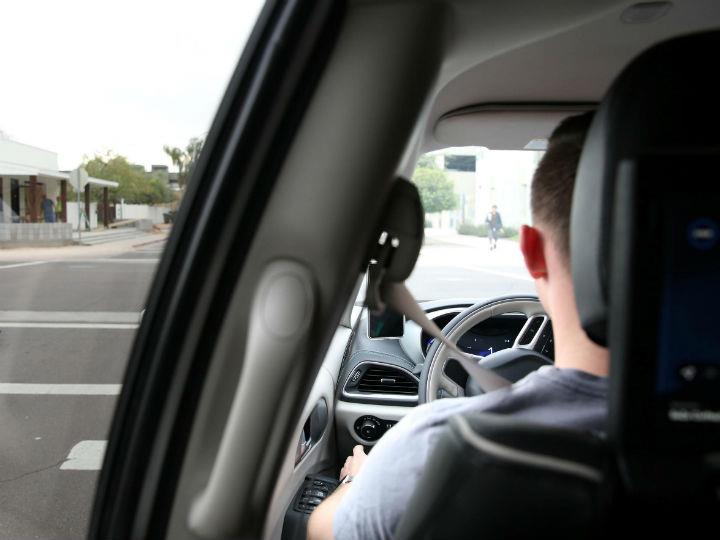by Sam Morgan
Europe’s transport sector is one of the few parts of the economy where emissions are still growing and as policy-makers mull how best to reduce mobility’s environmental impact, the idea of cranking up efficiency through next-generation technology is building momentum.
The EU’s ambition to go climate-neutral by 2050 is dictating policy across the board, especially in transport where serious obstacles lie in wait for the Green Deal’s emissions-busting mission.
In addition to promoting a shift away from fossil fuel usage towards electro-mobility, setting increasingly ambitious emissions-cutting standards and tightening air quality rules, another weapon in the green arsenal is digitalisation and connected vehicle tech.
The debate over connected cars, particularly which technology to bet the house on, has so far focused largely on road safety, as many of the applications are designed to prevent accidents, help vehicles react to hazards and protect pedestrians.
But there is also a great deal of potential to reduce greenhouse gas emissions by entrusting technology like ‘connected to everything’ (C-V2X) – wireless communication between vehicles – with making driving behaviour more efficient, as a lot of fuel is burned unnecessarily.
For example, tweaks to how traffic signalling operates can ensure that vehicles keep moving whenever possible, preventing unnecessary braking or stopping, which increases fuel consumption when momentum is lost.
According to a study produced by the Netherlands Organisation for Applied Scientific Research (TNO), an independent research group, emissions reduction potential could top 20%, depending on the situation and which vehicles are in use.
The scenarios modelled by TNO include traffic control measures, signalling, eco-routing, eco-driving, platooning and more. In one simulation, cars driving on motorways could reduce their emissions by 6% per kilometre travelled.
Isabel Wilmink, one of TNO’s lead scientists, told a EURACTIV event in November that preventing accidents is where connected vehicle tech benefits both road safety and climate policies, as crashes cause congestion, which in turn increases emissions.
The study concluded that “a high reduction potential was identified for an ‘everything is connected to everything’ scenario”, suggesting that the idea will only pay off in a meaningful way if it is embraced wholeheartedly.
Maxime Flament, chief technology officer at automobile association 5GAA, agreed that widespread rollout will be needed to unlock the technology’s full potential, adding that digitalisation “is a tool that leads to smarter analysis and decisions”.
Mass usage is a policy being embraced in China, where carmakers and tech companies are partnering up to design vehicles, software and infrastructure that is fit for purpose.
However, TNO did warn that there could be rebound effects such as longer or more numerous trips, and that the impact on future vehicle types cannot be predicted. The study added that the business case of connected vehicle technology must also stand alone.
MEP Henna Virkkunen (EPP) said that “there is a pressing need to make transport more safe, clean, sustainable, efficient and multi-modal. Digitalisation and connectivity can contribute to that and help us meet the objectives of the Green Deal.”
Charlotte Norlund Mathiessen, a Commission official in the team of transport Commissioner Adina Valean, made the point that “traffic emission reductions will be able to have the highest impacts when you consider it in parallel with other initiatives and legislation like emission standards and so on.”
Next year, the EU executive is expected to tighten existing CO2 reduction targets for cars and light vehicles, while also rolling out the next generation of standards, known as Euro 7.
“We shouldn’t forget the objective of these technologies, when you consider the economy, like congestion costs. Up to 1% of GDP is affected, which is huge when you compare it to the EU budget,” Mathiessen added.
Connected cars will only be as effective as the data they have access to, she explained, adding that “we need to make sure that data availability and interoperability and sharing is the best it can be. We need clear rules on rights and obligations.”
Mathiessen cited a number of data-based initiatives that the Commission will unveil, including the data governance rules and the EU’s data strategy, as well as the planned revision of the Intelligent Transport Systems Directive, due to be adopted in the second half of 2021.
At the same event, Geert De Cock from clean mobility group Transport & Environment warned that technological tweaks will not be enough by themselves and that “urban planning and policy play a crucial role” as well.
“Technology needs to be accompanied by policies and what we need now are reduced space for cars in cities and a model shift to walking and cycling particularly in urban areas,” he added.
Thanks to the coronavirus pandemic, cities across Europe have dedicated extra space to pedestrians so as to enable better physical- and social-distancing. That has included pedestrianising roads and installing new cycle paths.
Next week, the Commission will debut its Smart and Sustainable Mobility Strategy, a broad action plan that the EU executive hopes will help clean up the sector in more ways than one.
*first published in: www.euractiv.com




 By: N. Peter Kramer
By: N. Peter Kramer
